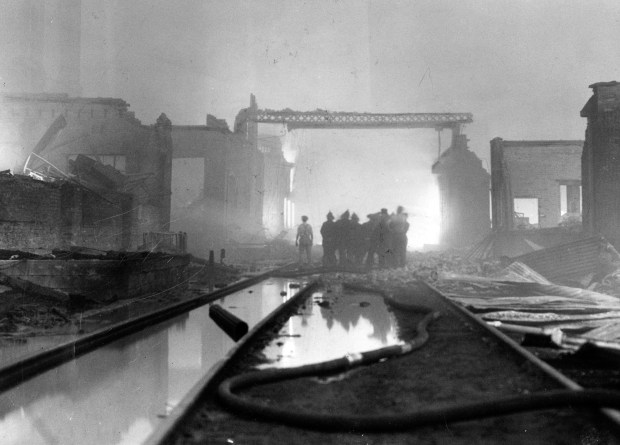WARSAW, Poland — The NATO leader warned Sunday that Donald Trump was putting the safety of U.S. troops and their allies at risk after the Republican presidential front-runner said Russia should be able to do “whatever the hell they want” to alliance members who don’t meet their defense spending targets.
Trump’s remarks caused deep concern in Poland, a country in central Europe that has been under Russian control more often than not since the end of the 18th century. Defense Minister Władysław Kosiniak-Kamysz said “no election campaign is an excuse for playing with the security of the alliance.”
Speaking Saturday at a rally in Conway, South Carolina, Trump recalled how as president he told an unidentified NATO member that he would “encourage” Russia to do as it wishes in cases of NATO allies who are “delinquent.”
“‘You didn’t pay? You’re delinquent?’” Trump recounted saying. “‘No I would not protect you. In fact, I would encourage them to do whatever the hell they want. You gotta pay. You gotta pay your bills.’”
NATO Secretary-General Jens Stoltenberg said that the 31 allies are committed to defending each other.
“NATO remains ready and able to defend all allies. Any attack on NATO will be met with a united and forceful response,” Stoltenberg said. “Any suggestion that allies will not defend each other undermines all of our security, including that of the U.S., and puts American and European soldiers at increased risk.”
Stoltenberg added in his statement that he expects that, “regardless of who wins the presidential election, the U.S. will remain a strong and committed NATO ally.”
The German government did not officially comment on Trump’s remarks, but the country’s foreign office published a statement Sunday morning pointing out NATO’s principle of solidarity.
“‘One for all and all for one.’ This NATO creed keeps more than 950 million people safe — from Anchorage to Erzurum,” the Foreign Ministry said on X, formerly Twitter.
German daily Frankfurter Allgemeine Zeitung wrote in an editorial that “if Trump will become U.S. president again, such statements will increase the risk of Putin expanding his war. Europeans can only do one thing to counter this: finally invest in their military security in line with the seriousness of the situation.”
Trump’s comments were of particular concern to NATO’s front-line countries, like Poland and the Baltic states of Lithuania, Latvia and Estonia, which were either under the control of Moscow or fully incorporated into the Soviet Union during the Cold War. Fears there run especially high given Russia’s invasion of Ukraine.
While in office, Trump had already threatened not to come to the aid of any country under attack that he considered owed NATO and the U.S. and was not spending enough on defense. His stance destabilized the alliance, particularly countries with borders close to Russia.
Under NATO’s mutual defense clause, Article 5 of its founding treaty, all allies commit help of any member who comes under attack. Article 5 has only ever been activated once – by the U.S. in the wake of the Sept. 11, 2001, attacks.
After Russia annexed Ukraine’s Crimean Peninsula in 2014, NATO leaders agreed to halt the defense spending cuts made after the end of the Cold War and start moving toward spending 2% of gross domestic product on their military budgets. No country is in debt to another, or to NATO.
NATO has undertaken its biggest military buildup since the Cold War since Russia invaded Ukraine in February 2022.
Cook reported from Brussels. Associated Press writer Kirsten Grieshaber in Berlin contributed to this report.



